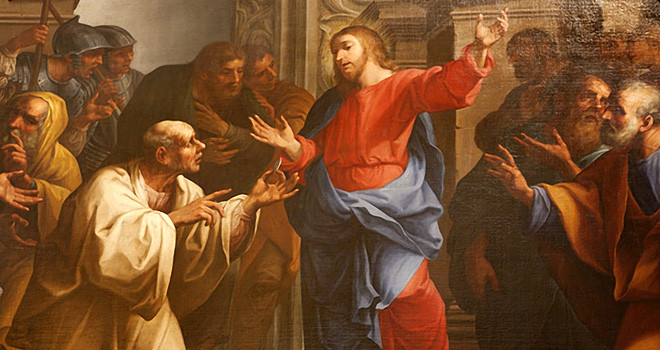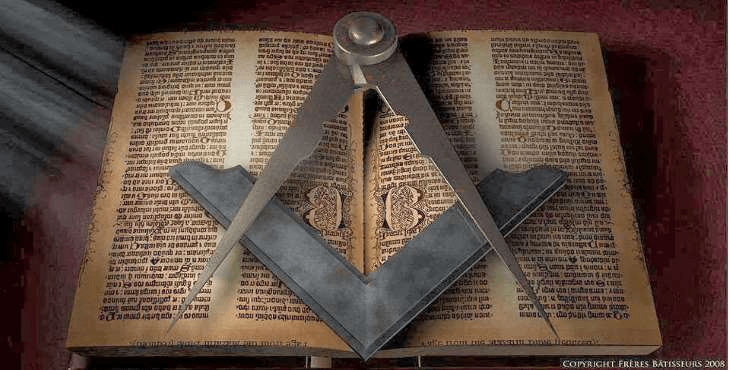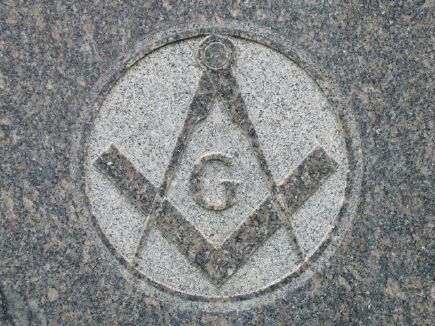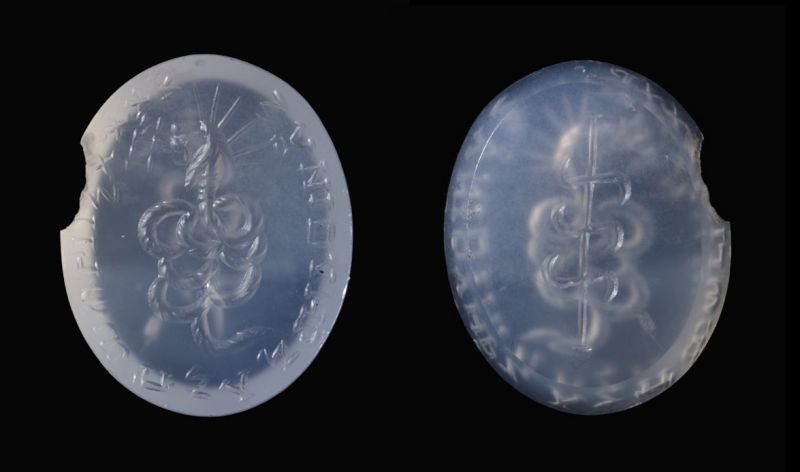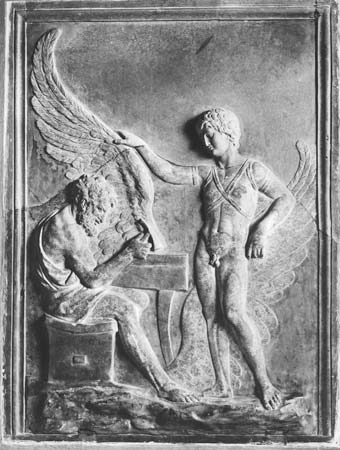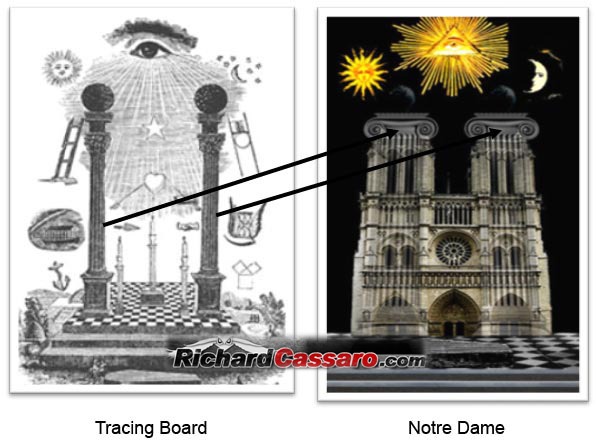The ancient Kings (Lords) of the East had two forms of government in which the king employed a governor to rule over their empire’s stone quarries, commerce, religion, and military by the royal title of “Tirshatha” (Turshatha, Tarshatha, Tursha, Tuirsha, תּרשׁתא, tirshāthā’, Ἁθερσαθά, Hathersathá).
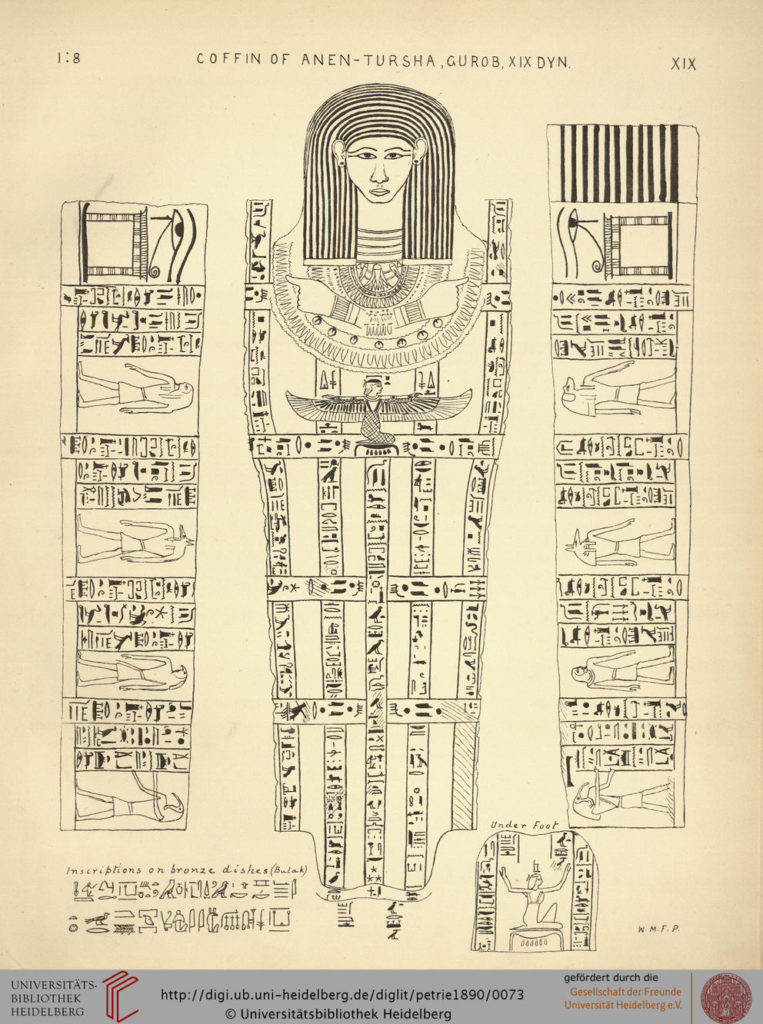
In the Bible, one of the most important and if not favorite of the Tirshatha (Turshatha) is mentioned by the Prophet Erza who calls Zerubbabel (Zorobabel) “the man for the occasion.”
For example, we learn in the Scripture that “Nehemiah presided as Tirshatha at the national sealing.” “Nehemiah did not become Tirshatha of Jerusalem until the twentieth of Artaxerxes,” and “Eliashib, the grandson of Jeshua, was a high priest when Nehemiah was made Tirshatha.”
According to the Book of Ezra 1:1-2, “With the blessing of Cyrus, Zerubbabel, and Jeshua the high priest leads marked out as the representative of the Persian king.”
After leading their return from the 20 years of Babylonish captivity, it appears that Zerubbabel who we know by his official title that he was sealed as the legal representative of the Persian king, the “Tirshatha for Persia.”
The word is used of officers and governors under the Assyrian (2Ki 18:24; Isa 36:9), Babylonian (Jer 51:57; Eze 23:6,23; see also Ezr 5:3,14; Ezr 6:7; Da 3:2-3,27; Da 6:7 [Hebrews 8]), Median (Jer 51:28), and Persian (Es 8:9; Es 9:3) monarchies. Under this last we find it applied to the rulers of the provinces bordered by the Euphrates (Ezr 8:36; Ne 2:7,9; Ne 3:7), and to the governors of Judaea, Zerubbabel, and Nehemiah (comp. Mal 1:8).
Like me, one of the world’s most famous physicists and mathematicians during the 17th-century scientific revolution, Sir Issac Newton who happened to be an excellent Biblical scholar, had cofounded using math and logic had Zerubbabel (Ezra 2:63; Neh 7:65, 70), and Nehemiah (Neh 8:9; 10:1) because they are one and the same persons
Newton had written;
“Comparing, therefore, the Books of Ezra and Nehemiah together, the history of the Jews is, that they returned from captivity under Zerubbabel In The First Of Cyrus, dwelt in their cities until the seventh month, and then coming to Jerusalem, they first built the altar” (Ezra iii. 2), “and in the first day of the seventh began to offer the daily burnt-offerings, and read in the book of the law, and they kept a solemn feast, and sealed the covenant.”
I believe that this title was given to both Zerubbabel (Ezra 2:63; Neh 7:65, 70), and Nehemiah (Neh 8:9; 10:1) because they are one and the same persons which can easily be sorted out given the facts that they lived at the same time, they were both from the Tribe of Judah, and assigned by the Persian royalty as governors and priests which at the time was only assigned to one person or Tirshatha.
It appears that after the 20 years of captivity and upon his return to Jerusalem, Zerubbabel then takes on the surname (holy name) of “Nehemiah” (Neh. viii. 9, x. 1) after he becomes “sealed on the head” and becomes a national hero for his Great Work of rebuilding the walls of Jerusalem, for the first time since their destruction by Nebochenezzer.
You will find that all the priests who came up with Zerubbabel (Nehemiah xii. 1), are exactly the same priests who sealed the covenant with Nehemiah and Ezra at the time of the feast (Nehemiah x. 1). Among those sealed and my readers should find no surprise was Obadiah who was one of the priests who signed and sealed the same covenant (Neh. x. 5.) who may be cofounded with Iddo, Neh. xii. 4. who returned with Zerubbabel. (See Sir Isaac Newton)
The key to understanding this chronology is found after Nehemiah arrives at Jerusalem when he now expressly speaks of “the former governors who had been before him, and were chargeable to the people.”
This passage clearly shows us that before they were conquered by the Persians and upon their appointment of the Persian Tirshatha as a legal representative or governor who we can say is “chargeable for the king (Lord),” the former Kings and governors of Judah were “chargeable to the people.”
Later, in the time when Cyrus’s son Darius had ruled Persia, Zerubbabel is famously credited with the future independence of his people by laying the foundation of the Second Temple in Jerusalem soon after and restoring that city to its former state and dignity, as a fortified town.
This may be the reason why we find the Tarshatha immortally honored by modern Masons as the degree of Knight of the East in the Ancient and Accepted Scottish Rite, according to the modern ritual of the Southern Jurisdiction of the United States, for Tirshatha, and applied to the presiding officer of a Council of Princes of Jérusalem. (An Encyclopedia of Freemasonry and Its Kindred Sciences, Volume 2)
According to the prophet Haggai who prophecizes; “On that day, says the Lord of Hosts, I will take you Zerubbabel, son of Shealtiel, my servant, and wear you like a signet ring; for it is you whom I have chosen. This is the word of the Lord of Hosts’” (Hag. 2:23).
Here we have another important clue as to the identity of these people with the words “he is chosen, a servant to the Lord and signet ring.”
Erza tells us how Zerubbabel, now named “Nehemiah” came to Jerusalem as “viceroy of Tirshatha,” clad with full powers, rebuilt the walls and adopted and enforced the legal reforms for the next twelve years.
Josephus that “after the death of Cambyses, and the slaughter of the Magi, but under the reign of Darius, Zorobabel was superior to the rest in the solution of problems; and thereby obtained this favor of the King, that the temple should be built.”
Josephus writes, “After the slaughter of the Magi, who, upon the death of Cambyses, attained the government of the Persians for a year, those families which were called the seven families of the Persians appointed Darius, the son of Hystaspes, to be their King.
Now he, while he was a private man, had made a vow to God, that if he came to be King, he would send all the vessels of God that were in Babylon to the temple at Jerusalem.
Now it so fell out, that about this time Zorobabel, who had been made governor of the Jews that had been in captivity, came to Darius, from Jerusalem: for there had been an old friendship between him and the King.
He was also, with two others, thought worthy to be guards of the King’s body; and obtained that honour which he hoped for.”
For his great Work, Zerubbabel was immortally enshrined as a prince of the blood-royal where he is emphatically called, the Prince, of the kings of the earth, Rev. i. 5. the King of kings and Lord of lords, Rev. xix. 16.
In Neh. ix. 38. and x. 1, 28, 29. it is said, “And because of all this, we make a future covenant, and write it ; and our princes, Levites, and priests seal unto it.
Now those that sealed were Nehemiah the Tarshatha, and the rest of the people, the priests, the Levites, the porters, the singers, the nethinins, and all they that had separated themselves from the people of the lands unto the law of God, their wives, their fons and their daughters, every one having knowledge and having understanding;
They clave to their brethren, their nobles, and entered into a curse and into an oath, to walk in God’s law, which was given by Moses, the servant of God, and to observe and do all the commandments of the L O R D our God, and his judgments and his statutes.”
SCIENTIFIC PROOF OF THE TIRSHATHA IN EGYPT
In my previous article, Tyre-Egypt: God’s Ancient Stone Masons of the Tora, I share my research in regards to a Tirshatha discovered in 1889 when an Egyptian archaeologist found what has been described as a “yellow-haired mummy” or “blonde person” that was a high or royal named Ш, wml Ё Ш Ъ Ш l, “An-Tursha”, “Anen-Tursha” or “Stone, Rock or Pillar of the Tursha”, and was governor of Heliopolis.

This mummy was found at a famous ancient stonemasons quarry called today Tura, Egypt that had produces some of the most famous and prized limestones in all the world. The stones mined here helped finish the pyramids and for the royal sarcophagus.
Some of the most powerful rulers for the Pharoah had ruled the Southern Kingdom of Egypt from this region which happened to produce not only some of the worlds finest stones and masons but also scribes, priests, and one of the world’s most powerful Navy operations.
The stonemason’s town of Tura bordered the Nile and thus the Mediterranean giving them exclusive access not only to the Pharoah but also Naval military access and the power of commerce for the region which must have been the most important shipping port in all the world.
These ancient facts I believe were the beginning stones for the foundation of the wealth for the noble families of Tyre who we now know were the king’s governors as late as the time of King Cyrus and as early as the 15th century BC in Tura, Egypt with the archaeological find of “An-Tursha”, “Anen-Tursha” who was governor of Heliopolis.
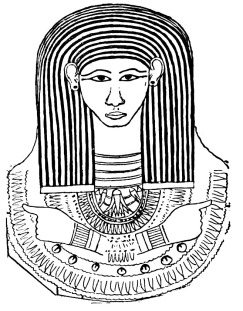
As I explained in the article, the native name of Heliopolis was I͗wnw (“The Pillars or The Stones”) which again connects to the people of stone ie: Tyre (Tur, Tor, Tora etc) to Tura, Egypt and also the Tursha (Sea Peoples). In Roman Egypt, the city belongs to the province Augustamnica, causing it to appear as Heliopolis in Augustamnica when it needed to be distinguished from Baalbek. Today, it remains a titular see of the Roman Catholic Church.
THE WORDS THAT BOTH CONCEAL AND REVEAL
Not surprisingly, the Levitical Scribes have encoded a special etymological meaning into the name of Zerubbabel and Tirshatha to signify a clue to his regal authority and role as a witness.
Like most names in the Scripture, they are composed of compound words that I believe are meant to relay a special message to their descendants and is meant to be understood only for the initiated ie: a select few (sealed by the sacrificial Oaths and reincarnated of the royal blood).
MEANING OF TIRSHATHA
It is said that the name Tirshatha is a Persian word for “Governor, His Excellency or His Reverence” title is used interchangeably with ‘governor,” and apparently represents an important or royal person who is “appointed by the King for a special mission.”
The meaning I have found in these names whether it be Tirshatha, Turshatha, Tursha, or Tuirsha is a bit different than the current narrative.
My research shows that they are compound words composed of Tir or Tur and Sha and sometimes with the appellation of tha at the end.
As I detailed in my previous article, Tyre-Egypt: God’s Ancient Stone Masons of the Tora, the ancient words variously spelled as tir, tur, tor and tyr can be used interchangeably to mean “rock, stone and or mountain” in which later times it became to be known as the equivalent of “governor, Lord, master or King.”
Especially when used in reference to their Tirshatha descendants and names of their cities which they ruled such as Old Tyre and New Tyre along with many other cities around the seafaring globe.
The word sha or shu are used frequently in the narratives of the Old Testament often in association with the servants (slaves) of the King ie: governors, the state religion and or the official names for the Levite priest or Prophet.
For example, Jo-shu-a was servant to Moses, Eli-sha to Elijah, and Eli-sha himself had a servant, Gehazi or a sha-ash’gaz (Heb. ttfttf. shahash-gaz’; Sept. Vat, gai), the appropriate name (meaning in Persian, servant of the beautiful) of a Persian eunuch, the keeper of the women in the court of Ahasuerus (Esth. 11:14), B. C. about 525.
The word Shaddai (sha’da-i), (Heb. “Ds, shaddah’ee, the Almighty; Vulg. in Pentateuch, Omtiipotens) is an epithet or name applied to Jehovah, sometimes with (Gen. xvii: 1; Exod. vi:3), and sometimes without (Gen. xlix:25; Kutli i:20, 21, and elsewhere), the prefix El for God.
In the Authorized Version the name is given as El-Shaddai where it first occurs; but is everywhere else rendered by ‘Almighty,’ which is the true signification, the word being plural of excellence from the singular, ‘mighty,’ ‘powerful.’
In the Scrip-tur, we meet a Levite named Shabbethai (sha-beth’a-i), who was a chief of the Levites who assisted Nehemiah in instructing the people in the law (Neh. viii :7; xi :i6) and assisted in enumerating those who had married foreign wives (Ezra x:i5), B. C. about 450.
One one of David’s famous guards was named Shabia or Shama (sha-ma, nHeb. shaw-maw) (1 Chron. xi:44; v:8).
Several very important people are named Shalum (shal’lum), (Heb. Bw, shafloom’, retribution)such as the 15th king of Israel who followed the death of Jeroboam If (B. C. 772), his son Zechariah was slain in the presence of the people by Shallum, who by this act extinguished the dynasty of Jehu.
Shallum is a king of Judah, son of Josiah (Jer. xxii: 11), better known by the name of Jehoahaz (B. C. 781). He was spared in the desert when the earth opened and swallowed up his father (Num. xvi:3i). His descendants had an office in the temple, to take care of the cakes that were fried there.
Shallum is listed as a Son of Shaul, a descendant of Simeon (1 Chron. iv:23), Levite priest, descended from Bani, who married a foreign wife (Ezra x:42)(Ezra x:24) and the last son of Napthali (1 Chron. vii 113).
Later we have a man named Shadrach who is listed as one of the three friends of Daniel who were delivered from the burning, fiery furnace.
We also have Shamir (sha’mir) who is called a “Kohathite Levite, son of Michah, and a servant under David in the sanctuary (1 Chron. xxiv:24). He is given the title of “A precious stone, named in Jer. xvii: 1; Ezek. iii:9; Zech. vii:i2. and is listed as a city of Judah (Josh. xv:48) and a city in the mountains of Ephraim, where Tola lived and was buried (Judg. x:l, 2).
Let me please add that there is also an infamous Masonic worm named Shamir (sha’mir) whom King Solomon had used to help him build Solomon’s Temple.
In the Hebrew tradition and as it is written in the Torah, we find that ten things were created on the eve of the Sabbath,” and among which is the Shamir. The story relates how Solomon sent his general Benaiah (Obediah, Bediah, Beda, Bedard) armed with his signet ring of Solomon to the King of demons, Asmodeus, with orders to bring unto him Shamir (the worm).
This Shamir was the “most excellent servant” who had helped Solomon with the stones of the Temple; “there was neither hammer nor axe, nor any tool of iron, heard in the house while it was in building.” (1 Kings vi, 7)
THE MEANING OF ZERUBBABEL
The compound word Zerubbabel contains the four words zer, ub, bab, and el.
The meaning of zer, zur, zir, and or zor are variations of the words sur, sar, and or sor which synonyms for the words “rock, stone, and or mountain.”
For instance, in the Scripture, the name Zu’ri-el means my rock is God; the meaning of Bethzur (beth’-zur) is House of the rock; place of rock and Zu’ri-shad’da-i, the Almighty is my rock.
The name Zer is mentioned in the Bible as one of the fortified cities in the territory of the tribe of Naphtali and is identical to one of two variants of the name of the Phoenician city Tyre (צר and צור). We know that Hiram’s mother was from Naphtali and he was one of the most famous Kings of Tyre (1 Kings 7:13-14).
As I explained in my article, the word Tyre is derived from the ancient word for rock, stone and or mountain which was tur, tar, tir, tyr etc.
The next word in Zer-ub-bab-el is ub which is synonymous with the words ab, eb, and or ib which is variously translated as “Father, origin, source, a fountain and or something proceeding from a fountain.” For example, Ab means father in Arabic, and Abi becomes “my father”.
Ab is one of the most popular appellations in the Scripture with names such as;
Abimelech, Ab-im’-me-lek, father of the king; Abi’hdd, the father of praise or confession; Abijah, the father of God; Ab-i’-jak, the will of the Lord. Abi’jam, father of the sea; Abinadab, Ab-in’-na-dab, father of willingness, Abiram, Ab-i’-ram, a high father, and Abishalom, Ab-bish’-a-lom, the father of peace; Ab’ner, father of light, the son of the father. Ab-ra-ham, the father of a great multitude; and A’bram, a high father, the father of elevation.
The last word in Zer-ub-bab-el is el which means “God” and is also spelled al, and il.
” Adon (ruler) into his palace” instead of “Adon (Lord) into his temple”—has first made congruous and clear— to the writer, at least. “Behold I will send my harbinger and he shall prepare the way before me. The ruler whom ye crave (Nehemiah) shall come suddenly to his palace, even the herald of the covenant whom ye demand. Lo, he will come, saith Jahveh Sabaoth. But who (of the transgressors) will bear the day of his coming? Who will stand when he appeareth? For he is like the refiner’s fire and the lye of washers,” etc. In the last chapter of his memoir, Nehemiah records in few words how literally he sat as a refiner and purified the sons of Levi. Those who would not repent and part with their alien wives were relentlessly banished.
We learn from Josephus in Chapter 5 that “Upon the death of Darius, his son Xerxes inherited his father’s Kingdom, and so did he inherit his piety towards God. For he did all things suitably to his father relating to divine worship; and he was exceeding friendly to the Jews.”
The Greeks called Cyrus by the name Artaxerxes and Xerxes is the abbreviated version of the same name.
After the death of Xerxes, the Kingdom came to be transferred to his son Cyrus; whom the Greeks called Artaxerxes.
At the time, Nehemiah AKA Zerubabbael was still Tirshatha for the Persians – AKA Governor of the Jews and the son of Jeshua, whose name was Joacim, and was the High Priest who was very skillful in the laws of Moses; and was well acquainted with the Persian royal house.
Joacim is credited with writing to the other governors of Syria the following epistle in order to have his priests and Masonic Levites to start rebuilding the Temple;
“Xerxes, King of Kings, to Esdras, the priest, and reader of the divine law, greeting. I think it agreeable to that love which I bare to mankind, to permit those of the Jewish nation that are so disposed, as well as those of the priests and Levites, that are in our Kingdom, to go together to Jerusalem.”
Later Josephus tells us that Nehemiah was one of those Jews that had been carried captive, who was cup-bearer to King Xerxes. After hearing about the destruction of Jerusalem, Nehemiah shed tears and said, “How long, O Lord, wilt thou overlook our nation; while it suffers so great miseries; and while we are made the prey and spoil of all men?”
King Xerxes cast his eyes on Nehemiah; and seeing him look sad, he asked him, why he was sad? Whereupon he prayed to God to give him favour, and afford him the power of persuading by his words; and said:
“How can I, O King, appear otherwise than thus, and not be in trouble; while I hear that the walls of Jerusalem, the city where are the sepulchres of my fathers, are thrown down to the ground; and that its gates are consumed by fire. But do thou grant me the favor to go and build its wall, and to finish the building of the temple.”
Josephus concludes; “Accordingly the King freely granted him what he asked and gave him an epistle to be carried to Adeus the governor of Syria, and Phoenecia, and Samaria. Wherein he sent to him to pay due honor to Nehemiah; and to supply him with what he wanted for his building.”
It is no surprise that given his stature an Ancient Freemason, we find in modern Freemasonry that Zerubbabel is called the “Prince of Jerusalem” and part of the Royal Arch degree ceremony in which a Master Mason is advanced to Companion is called Exaltation.
Holy Royal Arch Chapters are governed by three Principals, who conjointly rule the Chapter, sitting together in the east of the assembly.
It makes sense that Zerubbabel is also known as “the receiver of an apocalypse” who in the seventh-century Apocalypse of Zerubbabel is also known as Sefer Zerubbabel which is said to contain the prophecy given to him from God.
This is the word of the Lord to Zerubbabel:
“Not by might nor by power, but by My Spirit,’ says the Lord of hosts.”
“Who art thou, O great mountain before -Zerubbabel?
Thou shalt become a plain, and he shall bring forth the headstone (capstone) thereof with shoutings, crying, Grace, Grace, unto it.
The hands of Zerubbabel have laid the foundations of this house, his hands shall also finish it, and thou shalt know that the Lord of Hosts hath sent me unto you.
For who hath despised the day of small things.”

Moe is the founder of GnosticWarrior.com. He is a father, husband, author, martial arts black belt, and an expert in Gnosticism, the occult, and esotericism.

